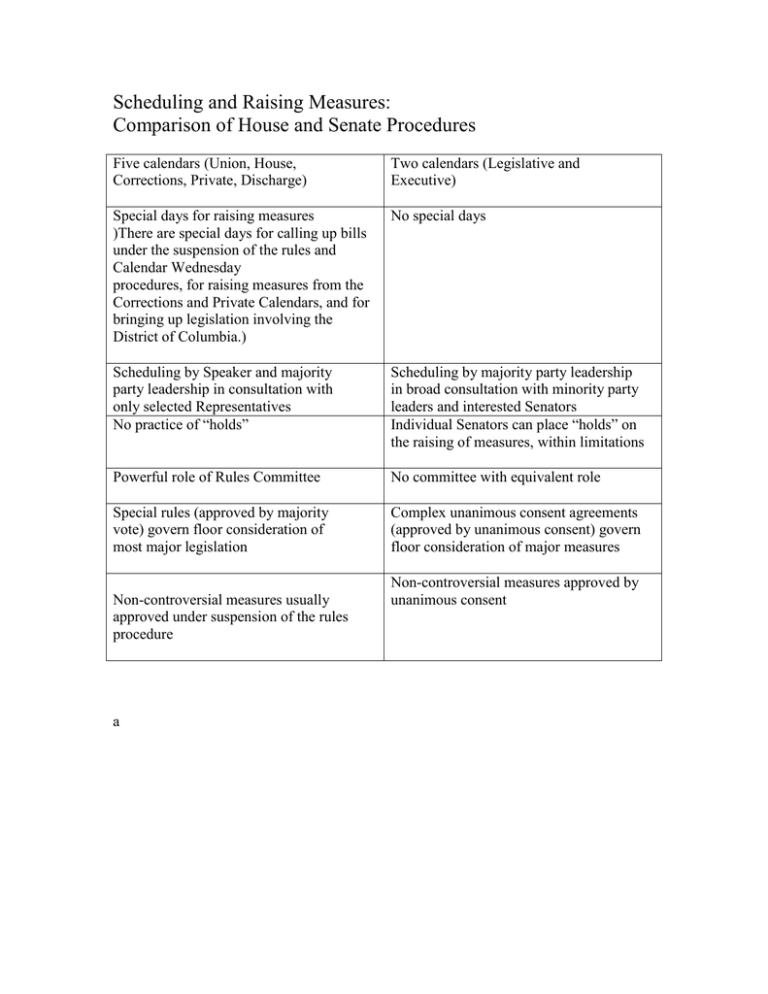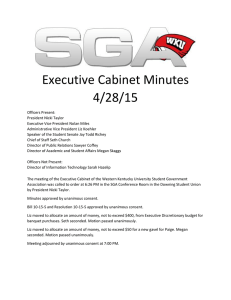Scheduling and Raising Measures: Comparison of House and Senate Procedures
advertisement

Scheduling and Raising Measures: Comparison of House and Senate Procedures Five calendars (Union, House, Corrections, Private, Discharge) Two calendars (Legislative and Executive) Special days for raising measures )There are special days for calling up bills under the suspension of the rules and Calendar Wednesday procedures, for raising measures from the Corrections and Private Calendars, and for bringing up legislation involving the District of Columbia.) No special days Scheduling by Speaker and majority party leadership in consultation with only selected Representatives No practice of “holds” Scheduling by majority party leadership in broad consultation with minority party leaders and interested Senators Individual Senators can place “holds” on the raising of measures, within limitations Powerful role of Rules Committee No committee with equivalent role Special rules (approved by majority vote) govern floor consideration of most major legislation Complex unanimous consent agreements (approved by unanimous consent) govern floor consideration of major measures Non-controversial measures usually approved under suspension of the rules procedure a Non-controversial measures approved by unanimous consent
